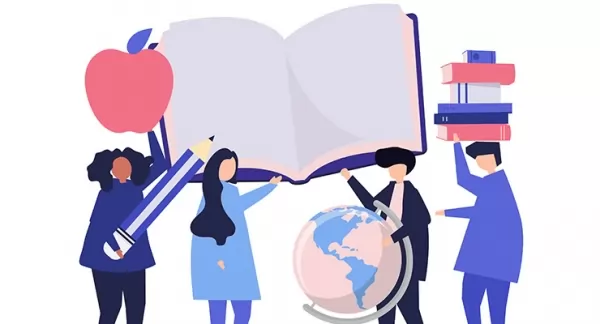New teacher guide

If you thought your PGCE was the toughest experience of your life, well, you’ve got a surprise in store for you – your first year as a newly qualified teacher will have you thinking twice about that idea.
Moving from academic life to a professional one will quite possibly be the hardest, most challenging period of your entire career as a teacher. The reality of working in a school is unlike anything you may have imagined and to say it is something of culture shock is putting it lightly. It’s like entering into a whole different world.
That’s not to say it is a ghastly experience, far from it. The satisfaction of teaching can be immediate and while you may find yourself shattered, stressed and under pressure, there is something of a counterbalance to that.
In delivering creative and engaging lessons that have a demonstrable and positive impact on your pupils, you may often find yourself heading home with a smile on your face, even a skip in your stride too.
This guide gives you an overview of how to get through the first 12 months of being a new teacher so that come next September, as the bell rings for the first class of the term, you feel relaxed, inspired and supremely confident.
Get to know your colleagues
The school environment is diverse when it comes to vocations, with a multitude of departments and roles beyond teaching. In light of that, in addition to getting to know your fellow teachers, introduce yourself to everyone and endeavour to build on these professional relationships over the course of the academic year.
This serves to one, make you visible to others and two, it allows you identify individuals who can help make your first year less demanding and nerve-racking. Although you may be exceptionally busy and curious to know how you can manipulate time – 24 hours is no longer enough – endeavour to attend staff socials. Consider it homework.
Plan, plan and then plan some more
Your experience of your PGCE is invaluable when it comes to coping with the sheer volume of work. Yes, the pace does increase significantly, and yes, the work appears two-fold to your study, but what you now have that you didn’t prior to your studies is knowledge and skill.
As you may have guessed, the secret to surviving, and indeed thriving, in a school is to plan, plan and plan. The more you know about your subject and teaching concepts, the more control you have over your lessons, the higher the chances of producing exciting and challenging lessons.
Embed reflection into your teaching practice
As you come to learn, reflection is a key feature of teaching. While at first you may have thought it was a tad prescriptive – i.e. doing it for the sake of doing it – it is hoped that you’ve come to appreciate the virtue behind the practice. It exists not as a bureaucratic means to an end – although it can feel that way – but as a methodology to boost and positively shape your teaching.
It is vital in the first year that you get into the habit of reflecting on your lessons and how it feels to teach because, in consulting academic texts and deliberating over various philosophies pertaining to education, you can make great strides in contextualising your emotions, as well as your direct experiences. This leads to action points, which expunge weaknesses and build on successes. Being a cyclical process, you keep progressing as a teacher. Reflection makes this more effective.
Deal with behavioural problems effectively
It is vital that early on you set a standard of expectation when it comes to pupil behaviour in the classroom so that your pupils know and understand when the line is crossed. This can be an extremely challenging part of the job, but with the right support and attitude, you can deal with issues extremely effectively.
Again, your PGCE will have exposed you to literature and guidance on this area, so go back to this and look over the material. Equally, consult your school’s own behaviour policy and speak to your colleagues about what strategies they use. And remember, managing challenging behaviour is not about punishing per se, it is about identifying and remedying underlying problems.






